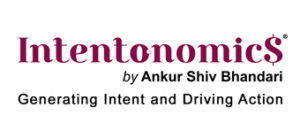Episode 01- Is this what you really want?- Listen Now!
In this episode, Ankur asks you to answer the questions on “Whether you are living the life you want?” Ankur also shares his own thoughts and experiences on the same.
In this episode, Ankur asks you to answer the questions on “Whether you are living the life you want?” Ankur also shares his own thoughts and experiences on the same.
Hear Ankur in his own words as he describes his upcoming Talk Show. The Talk Show focuses on sharing, learnings and experiences through life from a small town India to Boardrooms of the World Globally.
Follow the journey of a boy from a small town in India to Board Rooms of the world.
We recently moved to a new and bigger office for our business Asbicon in the UK and were looking for telecom companies to set up a phone system exchange with extensions etc. and had invited a few suppliers to assess our needs and provide options with quotes. Sales person of one of the suppliers had finished his presentation and was on his way out while another supplier’s salesperson came in. He said to me ” The cowboys are also pitching” IT WAS AN INSTANT TURN OFF!!
He started by talking about why this other company, his competition was useless and why he was much better etc. Although his solution was reasonable however, his credibility in my mind hit a bottom when his starting pitch was criticising competition. This is one example, we come across many such situations in dealing with sales people.
We need to focus on facts not negativity. We absolutely need to show why our product/solution is better but that needs to be done focused on facts rather than by insulting competition. If a client brings up competition or even if you proactively want to address the strengths you have versus competition, it is advisable to acknowledge that the competition provide a product/solution and they might have their own strengths but you are here to show why your product/solution is better
Focus on your strengths, your key points of differentiation and invest your energy positively in elevating your credibility.
Compare don’t criticise.
You are in a client meeting wanting to get agreement for a new product you want the client to sell. The client asks you for promotional support-you agree, the client asks for lowering the minimum order quantity- you agree, the client asks for reduction in price- you agree. Sounds Familiar? Did you get anything extra in return for agreeing to all those demands which might cost extra to you?
Now think for a second… What if when the client asked you for extra promotional support and instead of a straight yes you replied with:
“If You can agree to a minimum order quantity of X, then I will be happy to increase promotional support”
Similarly for any demand what if you use this response of “If You, Then I”?
Using this response will most likely help you to:
1) Not give anything without getting something in return
2) Strengthen your position
3) Create a fair negotiation platform
4) Provides the buyer with an incentive to agree to your requirements as well
There might be certain demands that you have which might have lower cost for the client but higher value for you and likewise, some demands that the client has which have low cost to you but high value to them. However, if you don’t ask the question of what you can get in return for agreeing to a demand/agreeing to a concession, the trading of those benefits cannot happen.
Infact, not only in a business scenario, try this out in your personal lives, with your partners, with your children. Next time when you get a demand for a new video game try something like ” If you get me an A in maths, then I am happy to get you a new PS” and see the magic happen….
For the past many years, there is a daily ritual I have. Watching a movie or a series episode everyday. I devote 1 to 2 hours almost daily towards this and feels quite therapeutic, relaxing and interestingly enough provides me with some good insights. After all, the cinematographic worlds many times are a reflection of our real worlds. There are certain clips which inspire,motivate or even force you to think about applications in real life. I will be sharing some of those in days to come but this particular one from a movie I recently watched was hilarious and thought provoking at the same time. How much passion in Sales is Good? Are there or should there be any boundaries? What do you think?
